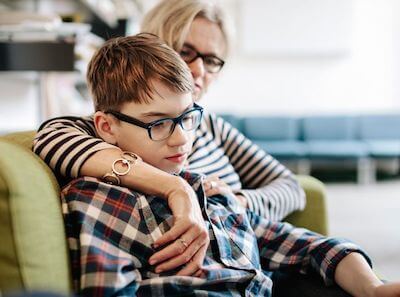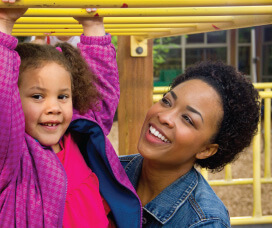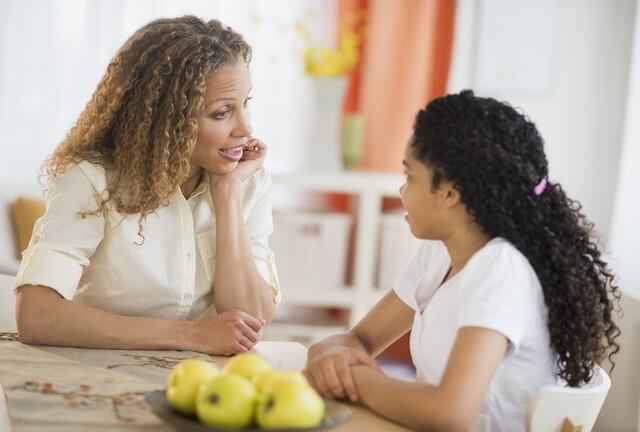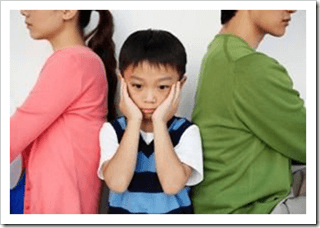By Rosalind Sedacca, CDC Divorce drives some people crazy. Because of that, divorced co-parents often make many poor decisions. Their judgment, integrity and behavior are easy to question. Their decisions regarding taking responsibility for their children come under scrutiny. There is much we can all learn from these mistakes as co-parents. And wisdom we can take away that is important for all of us to remember: It’s never too late to get it right – when your children are at stake! We all have regrets … In the heat of the divorce drama, we may have settled for a decision or two that we later regretted and still feel resentful. Or we made a child-related agreement that, in hindsight, was not in our child’s best interest – but we don’t know quite how to remedy the situation. Perhaps we lost our tempers at an inappropriate time and watched our children
Read More
parenting after divorce By Rosalind Sedacca, CDC Sadly, divorce is a time when we experience disconnection. We disconnect from our former spouse. Too often we often have to disconnect from time spent with our children as well. That’s why it is important for you to strengthen your bond with your children. Find ways of strengthening or at least maintaining your connections during this challenging period of transition. This is equally true, when you are living with your children as well as when you are apart. That’s the basis of a Child-Centered Divorce. Children want and NEED to know they are still loved, valued and cared about. Show them, tell them and keep in close communication with them – during the happy times and the sad ones. They need to feel they have a safe place to turn, a shoulder to cry on and a non-judgmental ear
Read More
By Rosalind Sedacca, CDC Sadly, divorce is a time when we experience disconnection. We disconnect from our former spouse. Too often we often have to disconnect from time spent with our children as well. That’s why it is important for you to strengthen your bond with your children. Find ways of strengthening or at least maintaining your connections during this challenging period of transition. This is equally true, when you are living with your children as well as when you are apart. That’s the basis of a Child-Centered Divorce. Children want and NEED to know they are still loved, valued and cared about. Show them, tell them and keep in close communication with them – during the happy times and the sad ones. They need to feel they have a safe place to turn, a shoulder to cry on and a non-judgmental ear when they need it. If divorce has
Read More
By Rosalind Sedacca, CDC My co-parent tells our kids not to tell me about what goes on at home when they visit. Can’t I ask questions? You’re not alone in being frustrated by finding balance in the privacy versus sharing equation. And there is no simple answer. After divorce most parents want to keep their private lives private and don’t want the children sharing too many details about their visit time. Asking your children to “spy” on their other parent puts the kids in an awkward situation. They feel guilty, pressured and confused, especially if Mom or Dad tells them not to share specific information. This delicate subject needs to be addressed between both parents and agreed upon in advance. Discuss sensible boundaries, taking into account the age of your child. Children should be able to talk to both parents about activities, meals or other innocent details regarding their time
Read More
Divorce catches kids in the middle By Rosalind Sedacca, CDC If you’re a parent, divorce doesn’t end your relationship with your former spouse. It only changes the form in some specific ways. It is still essential to create a working relationship focused on the optimum care and concern for your children. Every co-parenting relationship will be unique, affected by your post-divorce family dynamics. However, there are guidelines that will enhance the results for children in any family. Here are some crucial points to keep in mind to maximize your co-parenting success. Respect your co-parent’s boundaries: Chances are your former spouse has a different parenting style than you, with some conflicting rules. Rather than stress yourself about these differences, learn to accept that life is never consistent and it may actually be beneficial for your kids to experience other ways of doing things. Step back from micro-managing
Read More
Divorce catches kids in the middle It is estimated that between 42 to 45% percent of first marriages end in divorce. As partners who were once in love, going through a divorce can be extremely painful and frustrating. This experience is intensified ten-fold when you have children. There is no doubt that divorce has difficult emotional, educational, and social impacts on children. That’s why we’re teaching you the importance of co-parenting children through divorce and using a marriage therapist to your advantage after separation. How Kids are Affected by Divorce There are many reasons to see a marriage therapist if you are thinking about or are currently going through a divorce. One of the main reasons is so that you and your spouse can learn how to manage your children throughout your divorce. Here are just some of the ways that children are affected emotionally and mentally
Read More
By Rosalind Sedacca, CDC Getting divorced and preparing for the responsibilities of co-parenting ahead? This facet of life after divorce can be enormously complex and challenging for several good reasons: Both parents are bringing the raw emotions resulting from the divorce into a new stage in their lives. Mom and Dad are also bringing previous baggage from the marriage – ongoing conflicts, serious disputes, differing styles of communication, unresolved issues and continual frustrations -- into the mix as they negotiate a co-parenting plan. Both parents are vying for the respect and love of the children – and are easily tempted to slant their parenting decisions in the direction that wins them popularity with the kids. Anger and resentment resulting from the divorce settlement can impact and influence levels of cooperation in the years to come. Parents may disagree about major issues ahead that weren’t part of the parenting dynamic in
Read More
Divorce catches kids in the middle By Rosalind Sedacca, CDC Many families time their separation or divorce for the summer months to take advantage of the school break. But for many other families the divorce decision comes in the midst of the school year. January is one of the most common months to start the process. There are several reasons why this sometimes becomes a necessity. Many couples considering splitting decide to wait until after the holidays to break the news to their children. Others wait to take advantage of year-end job bonuses so they’ll have the extra funds to cover attorney, moving and other related expenses. Still others are faced with unexpected circumstances that accelerate the decision to divorce. Regardless, it’s not the why that should be concerning us at this time – it’s the how. How are we as parents going to approach this separation
Read More
By Rosalind Sedacca, CDC Anger-Conflict Programs for Co-Parenting & Other Life Challenges Parenting plans and contact schedules are an important part of divorce proceedings. They help create a semblance of routine in this new chapter of family life for divorcing parents. I am a strong believer in co-parenting whenever possible to serve the best interest of your children. But not all couples can work together with civility and harmony. So sometimes parallel parenting becomes the plan, meaning you both parent the children but with minimum communication between one another. Keep in mind that your kids pick up on the emotional energy around their parents and life after divorce is smoother and easier for them when their parents behave maturely and responsibly. However you work out your shared parenting plan, it’s the day-to-day challenges of post-divorce life that puts all co-parents to the test. Here are
Read More
By Rosalind Sedacca, CDC It’s no secret that one of the biggest challenges a parent faces after divorce is staying in good communication with your children. Obviously all parents struggle with communication issues as their children grow, but children who have had their lives dramatically altered by separation or divorce need even more attention – and diligent observation by their parents. Children tend not to tell you when they are angry, resentful, confused, hurt or depressed. Instead they reflect their problems through their behavior – acting out or perhaps turning inward in ways that you have not experienced prior to the divorce. Here are some tips that most all professionals agree about as ways to encourage positive and productive communication between you and your children. Many of these are obvious or innate behaviors. However, others can easily be forgotten amid the challenges you are juggling in your own life on
Read More










